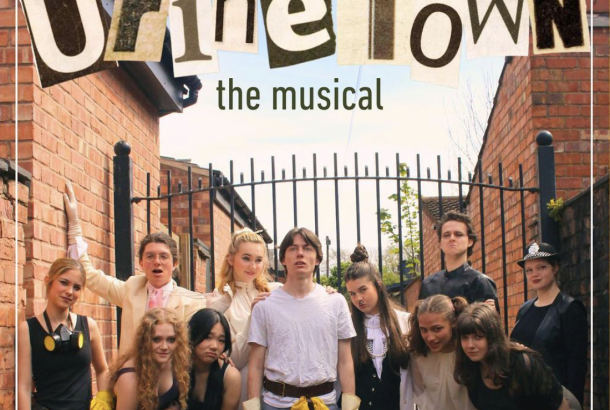Review: Lord of the Flies
By Joel Culver
The Lord of the Flies was first published in 1954. It tells the story of how a bunch of evacuated school boys find themselves stranded on a tropical island after their aeroplane is shot down. They try and establish order on the island by electing a leader, Ralph (in this production, played by Luke Ward-Wilkinson), but sightings of a beast and differing priorities leads to splintering into tribes led by Ralph and Jack (Freddie Watkins). The splinter group, spurred on by the desire for food, soon become a cult of death worshipping their first kill. This play depicts the departure of the morality of man when the constraints of civilisation and consequence are removed, and seeks to explore how the depraved resent salvation.
The set, consisting of the rear end of a crashed aeroplane and a wing, was thoughtfully and effectively used. Freeze frames were used in order to depict the synchronicity of events and were very effective. With rapid fire scenes of destruction interlaced with the ultra-slow, the play conjured up a sense of the frenzying and terrifying. The action depicted ideas of savagery carried out in homage to Ba’al or the “Lord of the Flies”. These moments were well choreographed, as was much of the play, with the fight between Jack and Ralph being believable as the vicious ‘to the death’ assault it is supposed to be.
However, the somewhat feeble attempts to ground the play in the present missed the mark for me. The allusions to Instagram, 3G, and banter, while humorous, detracted from the effect of the play given that in the modern day many of the religious symbolisms would be mitigated. They perhaps also interfered with the flow of the story.
The acting was fairly good from all points with Ralph, Piggy (Anthony Roberts), and Simon (Keenan Munn-Francis) being particularly well portrayed. Ward-Wilkinson’s portrayal of Ralph’s fall from grace was believable and his expression of despair for the latter half could almost have been genuine. Roberts’ Piggy was thoughtful and his delivery elicited empathy. And Munn-Francis’ confrontation with the Lord of the Flies was an excellent moment with the despair, anger, and subsequent fit being high points in the drama.
Despite the misses on the modernisation, this play contained interesting staging choices, and was certainly engaging and entertaining without losing the gravitas that such a dark story should evoke.







